FREQUENTLY ASKED QUESTIONS
FAQ
Most frequent questions and answers
While a history of hearing loss in your family or exposure to high noise levels may cause hearing loss, the easiest way to identify hearing loss is to notice how your hearing affects your daily life. You are probably the best judge of whether your hearing has declined.
You should have your hearing checked if you have experienced more than a couple of these signs of hearing loss:
- Tired or stressed from trying to hear
- Believe that everybody mumbles
- Find it easier to understand others when you are looking directly at their faces
- Frequently ask others to repeat themselves
- Increase television or radio volume to a point that others complain
- Have difficulty understanding speech in noisy places like cars, restaurants and theatres
- Fail to understand doctor’s instructions about medications
- Make inappropriate responses because you didn’t understand the question
- Miss essential sounds like doorbells, alarm clocks or smoke alarms
- Have trouble hearing on the telephone
- Turn one ear towards the speaker to hear better
Did you know for many people, hearing loss is a natural part of the aging process, and the onset is so gradual that you’re not aware that your hearing is deteriorating? Hearing loss can also be caused by ear infections, genetic medical conditions, illness, traumatic injury or prolonged exposure to noise.
Hearing loss can be caused by a number of factors including:
- Genetic factors
- Prolonged exposure to loud noise
- Medical conditions including measles and meningitis
- Ototoxic medications including some antibiotics
- Cancer treatments including chemotherapy
- Meniere’s Disease
- Ear infections
- Trauma and head injury
- The normal ageing process (presbycusis)
Referrals are not required however all Doctors and Specialists referrals are welcome.
Whether audiological services are covered by your Private Health Cover Provider is largely dependent on the type of fund and your individual level of cover. Some Private Health Cover Providers contribute towards the costs associated with hearing assessments and also the costs associated with the purchase of hearing instruments, and some funds only cover the costs associated with the purchase of hearing instruments.
Please check with your Private Health Cover Provider as to what your individual fund will contribute towards audiological services.
Hearing loss is not just a problem that affects the elderly. It can occur at any age, and in most circumstances it is easily addressed by the use of hearing aids and/or some form of hearing rehabilitation program. If your hearing loss is affecting your quality of life, no matter what your age, by seeing an Audiologist it can be a way forward to take control of the situation.This will help the person with hearing loss reconnect and start enjoying life again.
This is largely dependent on the type and configuration of your hearing loss, so it is important to have your hearing assessed by a qualified Audiologist so an appropriate and informed recommendation can be made. However, research has shown consistently that the use of a hearing instrument in both ears has a positive impact on the wearer’s ability to localise sound (where the sound is coming from), their ability to discriminate speech in noisy environments and improves the overall clarity of auditory information. If you look at it another way, why would you only get one lens in your glasses when both eyes need help?
The old saying ‘use it or lose it’ can apply here. A hearing instrument is designed to rehabilitate your hearing loss by providing frequency specific amplification where you need it most, to achieve adequate clarity of auditory information. The clearer the auditory information delivered to the ear, the better the brain is able to process the sound to improve your communication ability. In most cases unfortunately, sensorineural hearing losses are irreversible due to a deficit of damaged hair cells in the cochlea, e.g. usually damaged by excessive noise exposure or ototoxic drugs etc. Some types of conductive hearing losses can be addressed through medical intervention by an Ear Nose and Throat Specialist. Therefore it is important to have your hearing assessed by a qualified Audiologist to determine the most appropriate treatment option for you.
If the person with the hearing loss chooses not to treat their hearing loss with amplification e.g. hearing aids, when no action is taken and the nerves of the hearing mechanism aren’t used, they become deprived of stimulation and slowly become weakened (auditory deprivation).
You may have saved a few dollars by purchasing a single hearing aid rather than a pair, but you are depriving one ear from sound and causing the nerves on that ear to slowly weaken. Over time, the unaided ear is going to lose more and more functionality and when you do get around to buying a pair of hearing aids or adding a second hearing aid, the unaided ear will have a harder time adapting to sound.
No matter what you see advertised, there is no device that can completely remove background noise, nor would you want it too. A person with normal hearing can hear background noise, so why would a hearing aid cut it out completely. You need some background noise for safety reasons as well, like in hearing a reversing truck beeper or a rather large bus coming up behind you! What hearing instruments can do is apply greater emphasis to sounds in important areas, such as the speech range, and less amplification to sounds identified as noise, making those background sounds less prominent, but still audible.
There have been significant advances in hearing instrument design over the last couple of years, with devices becoming smaller and more discrete increasing the functional fitting range of the instrument. The social stigma associated with hearing loss has also reduced significantly since these technologies have become more readily available. Following your hearing assessment, your Audiologist will discuss with you the most appropriate options based on your degree of hearing loss and relevant lifestyle factors.
Musician’s ear plugs are custom fitted noise eliminating earplugs designed to maintain the ear canal’s natural frequency response, whilst attenuating sound to a safe level. The attenuators fitted can be 10dB, 15dB or 25dB depending on the level and duration of noise exposure. This means that musicians will still be able to hear the music they enjoy, just at a softer, safer and more comfortable level. Whether you play drums or sing in front of a band, custom musician’s ear plugs will reduce the amount of onstage volume to a safe level.



